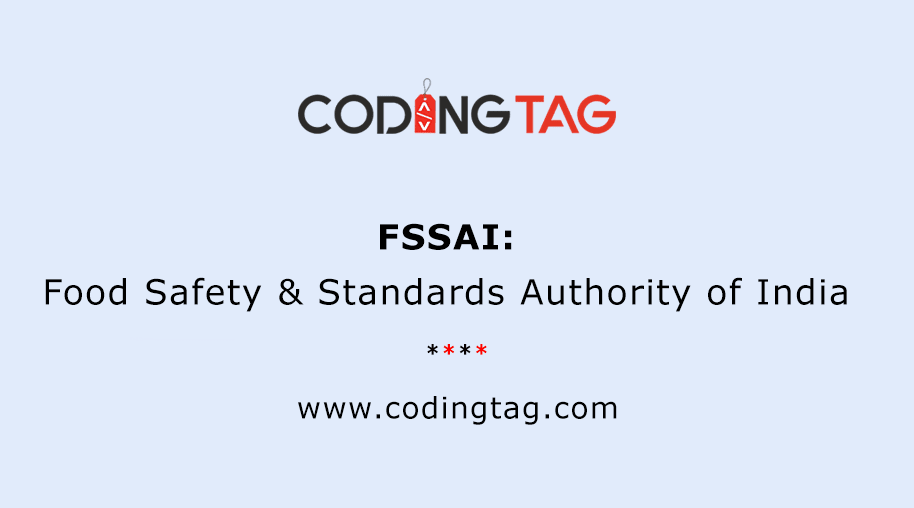VPN Full Form - Virtual Private Network
Last Updated by Devender
0 5617
What is the full form of VPN?
The full form of VPN is Virtual Private Network.
It is a service that helps you stay private online. It establishes a secure and encrypted connection between a device and the internet. This encrypted connection between the device and the network assures safely data transmission.
VPN कà¥à¤¯à¤¾ है ;- वरà¥à¤šà¥à¤…ल पà¥à¤°à¤¾à¤‡à¤µà¥‡à¤Ÿ नेटवरà¥à¤•, जिसे आमतौर पर वीपीà¤à¤¨ के नाम से à¤à¥€ जाना जाता है यह à¤à¤• à¤à¤¸à¥€ नेटवरà¥à¤• तकनीक है जो आपके असà¥à¤°à¤•à¥à¤·à¤¿à¤¤ नेटवरà¥à¤• को सà¥à¤°à¤•à¥à¤·à¤¿à¤¤ करता है। इतना ही नहीं वीपीà¤à¤¨ की सहायता से यूजर अपनी पहचान और लोकेशन को छà¥à¤ªà¤¾à¤¨à¥‡ में मदद करता है। वीपीà¤à¤¨ की इन सबी खà¥à¤¬à¤¿à¤¯à¥‹à¤‚ की वजह से आप की पà¥à¤°à¤¾à¤‡à¤µà¥‡à¤¸à¥€ सिकà¥à¤¯à¥‹à¤° रहती है और आप का डेटा हैक नहीं हो पाता !!
VPN Full Form - Virtual Private Network

VPN technology is one of the most trending techniques used in corporate organizations, colleges and many government sectors for preventing unauthorized access.
In this, a virtual connection is made instead of a dedicated connection i.e. leased line that permits the user for conducting work remotely.
VPN Working:
Data Transmits in VPN through tunnelling. Before transmitting any packet, it is first encapsulated into a new packet by integrating a header. That header contains entire routing information due to which it traverses data through a public network before reaching its destination.
The logical route, through which an encapsulated packet pass is known as a tunnel. When it reaches the endpoint of the tunnel, it will be decapsulated and then further forwarded into the final destination.
This entire process of tunnelling operates with the help of tunnelling protocols such as IPsec, SSL, PPTL and many more. These all protocols function at either the Network layer or OSI or data-link-layer.
This packet contains a non-routable IP address, which can be sent Globally IP address inside the packet. VPN provides a virtual IP address apart from a unique IP address.
When VPNs are required?
VPNs are beneficial when there is a need to encrypt or hide activities on the internet. It also hides location and permits users to be more anonymous.
Types of VPN
a) Remote Access VPN:
Secure remote access facilitates a secure method for connecting devices and users remotely over a corporate network. It consists of VPN technology for authentication and is applicable for both home users as well as business users.
b) Site-to-site VPN:
Site-to-site VPN is also known as Router-to-Router i.e. dependent on communication between two routers in which one router acts as a Client and another one as a VPN server. In these routers, interaction takes place through authentication.
Different features required to be incorporated in a well-designed VPN are below:
- Scalability
- Policy Management
- Security
- Reliability
- Network Management
- Extend Geographic Connectivity
- Decrease Operational Costs
- Lesson transmission time as well as travelling expenses for remote users
- Expand Productivity
- The complex network topology is improved
- Deliver global networking chances
- Facilitates telecommuter support
- Fasten Return on Investment (ROI)
- Provides IP addresses Globally
- File Sharing
- Online Anonymity
- VPN slows down your connection speed
- Connection drop
- Support for all devices is not available
- Privacy issues with some VPNs
- Legality issues
VPN Protocols:
All the VPNs are created different and they have different speeds, capabilities, security and privacy depending on their protocols. Here are the 6 common VPN Protocols.
1 IPSec
IPSec is known as Internet Security Protocol and it is used to secure Internet communication across an IP network. It runs in 2 modes:
a) Transport Mode
b) Tunneling Mode
2 L2TP
L2TP or Layer 2 Tunneling Protocol generates a tunnel between two L2TP connection points. It is often combined with another protocol such as IPSec Protocol.
3 PPTP
The PPTP or Point-to-Point Tunneling Protocol is one of the most used VPN Protocols. It generates a tunnel and confines the data packet.
4 SSL or TLS
SSL stands for Secure Sockets Layer and TLS stands for Transport Layer Security. SSL and TLS generate a VPN connection where the browser acts as the client and access is limited to specific applications and not the entire network.
5 OpenVPN
It is an open-source VPN used to create site-to-site or point-to-point connections. It is based on the SSL and TLS protocol.
6 SSH
SSH or Secure Shell generates an encrypted VPN tunnel through which the data transfer takes place.
Security Protocols
The security protocols ensure the security and integrity of data over the internet. There are many protocols that help in maintaining the security of data to be transferred such as SHTTP, PEM, etc. Here are the 6 most commonly used Security Protocols:
1 SHTTP
SHTTP stands for Secure HyperText Transfer Protocol. It is a set of security measures designed to secure Internet communication. It authenticates and encrypts HTTP traffic between the client and the server.
2 PEM Protocol
The PEM Protocol stands for Privacy Enhanced Mail. It is used for mail security over the internet and is capable of cryptographic operations such as encryption, no repudiation and message integrity.
3 SSL Protocol
The Secure Sockets Layer Protocol is used to ensure the security and integrity of data online. It is located between the application and the transport layer. The SSL Protocol is further divided into 3 protocols that are: the Handshake Protocol, the Record Protocol and the Alert Protocol.
4 TLS Protocol
TLS stands for Transport Layer Security and it has the same usage as SSL. It is basically used to encrypt communication between online servers. Just like SSL, TLS also has 3 sub-protocols which are: Handshake Protocol, Alert Protocol and Record Protocol.
5 SET Protocol
SET stands for Secure Electronic Transaction. This protocol is mainly used to maintain the security and integrity of electronic transactions made by credit cards. It is not a payment system but only a secure transaction protocol and is mostly used by e-commerce platforms.
6 PGP Protocol
PGP stands for Pretty Good Privacy. This protocol is the simplest to use and it provides free security. This protocol provides all the basic cryptographic features just like a free VPN. The popularity of this protocol is very high as compared to other protocols.
VPN Connections
A VPN connection establishes a secure connection between the user and the internet and routes all the data through an encrypted virtual tunnel. It also disguises users' IP addresses making their location invisible.
A VPN connection is also secure against external threats such as cyber-attacks, etc. because nobody else can access the data in the encrypted tunnel. It also allows the user access to regionally restricted content anywhere in the world. The best thing about VPN connections is that one single VPN service can be used for your windows PC, mobile device and all other devices.
VPN Client
A VPN client is the end recipient of the VPN services. It can be a device, software or user that is seeking a connection with a VPN service provider. VPN client is a part of the VPN infrastructure.
A VPN client can be a single purpose-built mobile device or a simple computing and networking device configured with VPN client software. Some VPN Clients work in the background whereas some have front-end interfaces allowing users to configure according to their needs.
VPN Pros and Cons
Pros:
Cons:

Share:








Comments
Waiting for your comments